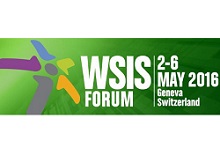Internet fragmentation
2 May 2016 16:30h
Event report
[Read more session reports and live updates from the WSIS Forum 2016.]
The workshop was moderated by William J. Drake (University of Zurich, Switzerland) who co-authored the report Internet Fragmentation: An Overview presented in January this year at the World Economic Forum.
As there is no general understanding on what is fragmentation different topics are included in discussions. Drake pointed out that ‘we need to step back and analyse all the implications it has. “Fragmentation” tries to capture a lot of concepts.’
Prof. Wolfgang Kleinwächter (University of Aarhus, Denmark), underlined how the terms of the discussion have evolved from the 1990s. Back then, it was all about different networks fighting each other for control. Now, there is consensus of developing only one Internet but with different actors, such as governments and enterprises, pushing for the control of the layers.
Mr Nigel Hickson (Vice President of Global Stakeholder Engagement at ICANN) said that Internet fragmentation is essential in the ICANN function of controlling the Domain Name System (DNS). As a technical organisation, ICANN has to point out the consequences of policy decisions.
Ms Anriette Esterhuysen (Executive Director of the Association for Progressive Communications) thinks the Internet is fragmented because the world is fragmented. ‘We have different conceptions of law, human rights for example’, she said. From her point of view, ‘the discussion has changed from preventive to responsive, in which we must think how we respond and deal with fragmentation.’
Many panellists emphasised the importance of giving information to governments about the consequences of policy decisions around the Internet. Ms Olga Cavalli (Advisor to the Ministry of Foreign Affairs of Argentina) thinks governments can fragment intentionally or unintentionally. They need more information on how to deal with this. She also expressed how the Internet of Things will give rise to new questions and make the discussion more complex.
Ms Cristina Monti (International Relations Officer of the European Commission) talked about how her organisation wants an open and unique Internet and for it to work properly. The Digital Single Market is the objective and for that they need to eliminate obstacles, such as geo-blocking of content within the European Union.
Panellists agreed that there are different conceptions of fragmentation depending on whether the definition has technical origins or not. When technicians and engineers talk about fragmentation, it is narrower; for example, the compatibility of adopting IPv4 to IPv6 or the implementation of new GTLDs. Regarding this duality, Kleinwächter noted that cybersovereignty could have implications for the technical stability of the Internet. He exposed a worst-case scenario as one in which governments had one IP address fixed for each citizen, and used it as a passport. In this scenario, the individual would have to renew their passport every year. The government would know exactly which content they had accessed and could deny renewal.
The general consensus was that too much regulation would increase fragmentation but that a legal application is needed for defending human rights and economic development.
by Matías Jackson
Related event

